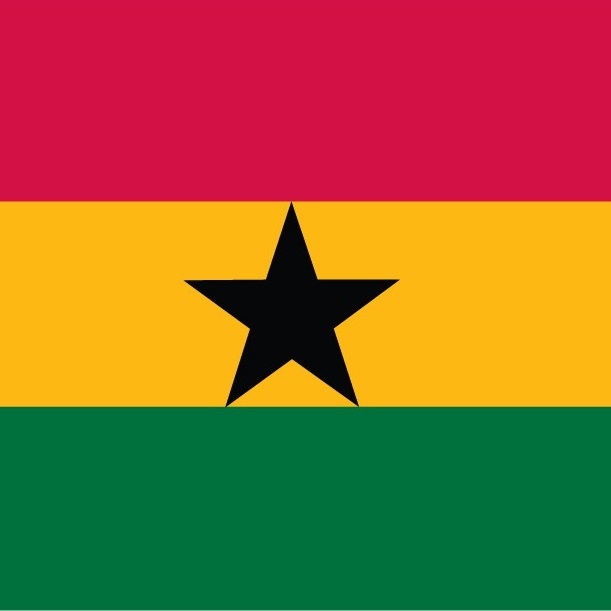Ghana and its Multinationals: Reigniting the Spark


by Farouk Appiedu, MBA ’17
With a population of 28.2 million, Ghana is considered one of the world’s fastest-growing economies—if not the fastest growing economy in Africa in 2018[1] — and is among the most stable African countries, marked with relatively low corruption and high political stability.
Ghana’s $42.69 billion economy (ranked 85th in the world) is primarily fuelled by abundant natural resources such as cocoa, gold, and more recently, oil, with total natural resources making up 17.1% of 2015 Gross Domestic Product, compared with a world average of 3.7%[2,3]. In 2016, Ghana exported $10 billion, making it the 64th largest export economy in the world. The West African country is also the second largest cocoa exporter in the world [4]. Agriculture accounts for approximately half of the country’s economy and export earnings, which also formally and informally employs more than half of the Ghanaian population.
A boost to Ghana’s oil production amid the oil price rally coupled with increased monetary policy accommodation against a backdrop of slowing inflation is expected to propel the country’s Gross Domestic Product growth in 2018. The economic growth in Ghana has translated into enormous growth for most local corporations. However, Ghanaian corporations appear content to compete locally and have little to no interest in becoming global players in their respective industries.
For this article, we provide both an economic and informational summary of the Enterprise Group, a large Ghanaian insurance corporation, with a focus on its relevance in the national economy and the barriers it faces in its effort to internationalize. We conclude with a discussion on strategies that can be adopted by the Enterprise Group to overcome its challenges and what the government should do to support.
The Enterprise Group
As the oldest insurance company in Ghana, the Enterprise Group was founded in 1924 and was then known as the Royal Exchange Assurance Corporation UK, only becoming the Enterprise Group in 1977 [5].
The Enterprise Group is one of the pioneering companies of the Ghana Stock Exchange (GSE) and the first insurance company to be listed. It has evolved over the years by taking advantage of profitable business opportunities in other sectors other than insurance, as a consequence of which the company has four major subsidiaries: Enterprise Insurance Company (EIC), Enterprise Life, Enterprise Trustees and Enterprise Properties. The former is the most dominant among the four subsidiaries. Enterprise Life was incorporated in a partnership between EIC and African Life, a Zambian insurance company, through the International Finance Corporation. Enterprise Life is currently the second largest life assurance company in Ghana with a presence in the Gambia. Enterprise Trustees is a pension administration company, while Enterprise Properties is a real estate arm of the group.
Despite the challenges posed by the Ghanaian economy and the weakening of the cedi, the Enterprise Group has withstood sustained growth. The group grew its insurance premiums by 28% and saw an overall growth of 30% in net income from June 2016 to June 2017. The Group’s total assets increased by 34% from GHC 691m (US $ 152M) to GHC 923m (US $203M) over the one-year period [6].
Barriers to Internationalization
The enterprise group, unlike most native Ghanaian corporations, has already expanded its reach outside of Ghana. As an insurance company, it is imperative that the Enterprise Group expand into other countries to diversify its risk pool. There are however several barriers to this end.
An industry specific burden the Enterprise Group faces is the increasingly (and varyingly) onerous regulatory burden in most countries, which range from issues concerning reporting requirements, financial reserves and price controls to capital requirements. All these regulations render the expansion into other geographic markets an expensive and cost prohibitive process for players like the Enterprise Group. Another form of regulation that serves as a barrier to insurance companies seeking to enter new geographic markets is licensing, which can be a daunting and lengthy process in most countries.
Enterprise group also faces challenges in recruiting and retaining the right people in most potential target markets in key fields, including sales, distribution, technology management and marketing. It is also difficult for insurance companies to find qualified agents, brokers and underwriters. Most of the actuaries available in African countries for instance are trained outside the country and therefore command expensive salaries.
The Enterprise group faces yet another barrier in the lack of brand awareness it faces in potential host countries, wherein the value consumers perceive in buying an insurance policy is less certain. The intangible nature of insurance and longstanding negative perceptions about the insurance industry complicate new market entry and growth in market share without costly marketing expenses. The Enterprise group has been successful in the Ghanaian market mainly due to its reputation, but it needs to replicate and translate this reputation into other countries if it is to be successful in such markets.
Internationalization Strategy
In expanding its operations, the Enterprise group should seek high growth markets with low insurance penetration rates . The Enterprise group has a wide array of African countries it could potentially expand into if it deems a regional expansion strategy more feasible than an inter-continental expansion. The only African countries with penetration rates above 3% as of 2015 were Kenya (3.41%), Mauritius (5.84%), South Africa (15.4%), Botswana (3.40%), and Namibia (7.90%) [7]. Besides these, any country in the African continent could be a target for the Enterprise group, such as the markets of Nigeria (0.30%), Burkina Faso (0.78%) and Benin (0.85%), which have relatively low penetration rates.
Enterprise group should also prioritize engagement with the public through educational campaigns to raise awareness on the potential benefits of insurance. The educational campaign will also help generate positive brand awareness for the company. To succeed as a regional player in West Africa, it should find solutions to address the trust deficit gap most insurers in the region encounter, which it might overcome by developing innovative products that are more understandable and have few restrictions. The Enterprise group should initially offer specific coverage as opposed to blanket insurance coverage so as to ensure the customer knows what he/she is paying for.
Sparking the plug: Stimulating Locatl Corporations to go Global
There is no doubt that government policy, incentives, subsidies, and infrastructure can be vital in nurturing global corporations. It is critical that these governmental policies target sectors in which the country has a comparative advantage. Thus, in a country like Ghana, which consists of a relatively low-skilled labour force but is well-endowed with natural and human resources, labour-intensive industries should be given priority in the hopes of promoting exports and companies that are likely to go global.
The first step in nurturing local companies into multinational corporations is to transform the country’s local economy into a strategic export-led economy. An export-led economy will enable the country to take advantage of international trade initiatives such as the African Growth and Opportunity Act (AGOA) and the Economic Partnership Agreement (EPA). An Export and Import (EXIM) Bank in Ghana will be a step in the right direction. The EXIM Bank will act as an intermediary between the government and local exporters to facilitate export financing. It can be of additional help to Ghanaian local corporations, too, by providing export education to these companies in order to ensure that they are abreast of the constantly changing international requirements. The EXIM Bank could also provide insurance solutions and risk management services to address the high risk involved with the internationalization of operations.
Another commonly cited barrier to internationalization by local Ghanaian corporations is the limited managerial capacity. Most corporations believe it is essential to have managers or directors with previous international experience to successfully execute an internationalization strategy. The government can address this barrier by establishing key programs such as a 24-month export coaching and exchange program for directors and managers of various local corporations. This program would give potential international managers the opportunity to spend time in a country into which the local corporation is likely to expand and would provide managers with the foreign exposure to help them get up to speed with the relevant laws and regulations in various host countries.
The government should evaluate the cost involved in implementing these programs as an investment, but they should not lose sight of the benefits local corporations will reap once they globalize, including progress towards achieving a positive balance of payment from inward flow of foreign earnings and increased demand for home-country exports. Outward FDI can also potentially reduce the unemployment rate of the home country due to demand of home country products in foreign markets.
Indirect benefits of home companies moving abroad also include potential knowledge transfer to the home economy, which would likely see productivity improvements. The transmission of knowledge can indirectly occur when domestic multinationals bring more advanced managerial strategies acquired abroad to their home market creating an opportunity for its domestic branch and other domestic firms to learn through observation. The transfer can also happen directly through the movement of labor, where domestic multinational employees obtain new skills from international exposure which they transfer to domestic employees.
References
1. http://thenerveafrica.com/11890/ghana-will-be-africas-fastest-growing-economy-in-2018/
2. https://www.worldatlas.com/finance/ghana/gdp.html
3. https://data.worldbank.org/indicator/NY.GDP.TOTL.RT.ZS
4. https://atlas.media.mit.edu/en/profile/country/gha/
5. https://www.enterprisegroup.net.gh/group/modules/index.php#aboutus
6. https://www.enterprisegroup.net.gh/group/modules/index.php#investors
7. http://www.tandfonline.com/doi/pdf/10.1080/23322039.2016.1150390
